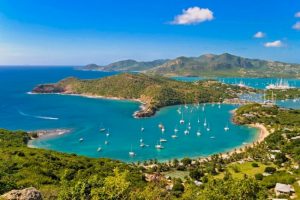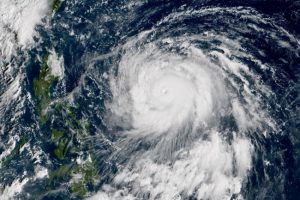 Only a month after hurricane Irma struck Antigua and Barbuda and left the small Caribbean island to suffer damages which cost millions, the typhoon unlocked a years-long conflict between the small island nation and the U.S. government over online gambling. The conflict emanates from the crackdown on online gambling launched by the United States somewhere in the 2000s.
Only a month after hurricane Irma struck Antigua and Barbuda and left the small Caribbean island to suffer damages which cost millions, the typhoon unlocked a years-long conflict between the small island nation and the U.S. government over online gambling. The conflict emanates from the crackdown on online gambling launched by the United States somewhere in the 2000s.
The war between the exotic Caribbean island and the U.S keeps on heating the atmosphere between the two foes. But after Irma left Antigua and Barbuda in ruins, the government is in an urgent need of a financial help. This resulted in the Caribbean island insisting on resolving the problem, which already cost $200 million, or almost 20% of the needed cash to fix the damages.
The conflict between the small island nation and the U.S. started as far back as 2000 when the U.S. started implementing a ban on the provision of online gambling services across the federal republic. At first, the U.S. officials prohibited the use of mobile Internet-supplied devices for placing bets. The matters reached a culminating point in 2006, when the U.S. government adopted the so-called Unlawful Internet Gambling Enforcement Act in 2006.
Where the Problem Stems From?
 Antigua and Barbuda became the world’s first jurisdiction to legalize online gambling within its borders in 1994. The Caribbean island passed an online gambling bill, which allowed operators to apply for licenses for the provision of online gambling. Coming as no surprise, this strategic and bold move influenced the economy in a positive way, as it enjoyed an additional source of tax revenues. But the U.S. severe measures against the online gambling seriously damaged Antigua and Barbuda’s previously proliferating industry.
Antigua and Barbuda became the world’s first jurisdiction to legalize online gambling within its borders in 1994. The Caribbean island passed an online gambling bill, which allowed operators to apply for licenses for the provision of online gambling. Coming as no surprise, this strategic and bold move influenced the economy in a positive way, as it enjoyed an additional source of tax revenues. But the U.S. severe measures against the online gambling seriously damaged Antigua and Barbuda’s previously proliferating industry.
Exploring various ways to stabilize its online gambling sector and bring back its lost attractiveness, the Antigua and Barbuda’s officials asked the World Trade Organization (WTO) for help. The organization found out that the U.S. government prevented Antigua and Barbuda licensees from providing online gambling services within the island’s border, violating its trade commitments. Hence, the WTO ruled out in favor of Antigua and Barbuda, announcing that the US is obliged to pay the island nation $21 million in annual damages. But the U.S. government refused to agree with its punishment and its debt to Antigua and Barbuda currently exceeds $250 million. Consequently, the organization allowed the island to use other measures in order to compensate for what it is owed such as breaking U.S. laws regarding the intellectual property.
Antigua and Barbuda’s ambassador to the United States Ronald Sanders told the WTO that the island nation respects the U.S. copyright laws and it does not consider to break them. Prime Minister Gaston Browne commented that the U.S. is the country with the highest gambling activity in the world and it is hypocritical to proclaim gambling moral confines. He added that at present, the island needs the money more than ever in order to pay for the damages after Irma.



















